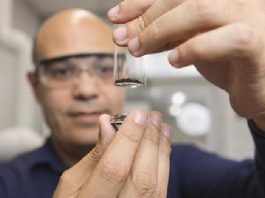Europe’s first exascale supercomputer, JUPITER, will be built by German quantum computing company ParTec AG, and Eviden, the Atos Group business leading in advanced computing in France.
JUPITER, or the ‘Joint Undertaking Pioneer for Innovative and Transformative Exascale Research,’ will be the first system in Europe capable of more than one exaflop/s. This number is equivalent to one million times one million times one million – a ‘one’ followed by 18 zeros – floating-point operations per second.
The number corresponds to the computing power of ten million modern notebooks.
JUPITER is set to partake in a variety of applications
The exascale supercomputer will tackle the most demanding simulations and compute-intensive AI applications in science and industry.
Applications will include:
- Training large neural networks;
- Simulations for developing functional materials;
- Creating digital twins for medical purposes;
- Validating quantum computers; and
- High-resolution simulations of our climate.
The system is expected to operate for six years.
The cost of the system itself and its operation during its lifetime is expected to cost €500m.
The European Union will fund half of JUPITER, whilst the other two quarters will be funded by the German Federal Ministry of Education and Research (BMBF) and the Ministry of Culture and Science of the state of North Rhine-Westphalia (MKW-NRW).
Modular supercomputing architecture will be implemented by JUPITER
The exascale supercomputer will consist of a highly scalable booster module and a tightly coupled general-purpose cluster module.
The cluster module will be based on SiPearl’s new Rhea processor made in Europe. This processor is a CPU with exceptionally high memory bandwidth for complex workloads.
The booster module will feature NVIDIA’s accelerated computing platform designed for next-generation data centre technologies. This will help to deliver extreme-scale computing power for AI and simulation workloads, such as training generative AI.
Eviden will integrate the components into their highly energy-efficient BullSequana XH3000 platform.
The modules are dynamically operated as a unified supercomputer using ParTec’s modular ParaStation Modulo operating system.
How will the new system impact Europe?
ParTec, Eviden, SiPearl and NVIDIA are collaborating with the European scientific community on JUPITER to give scientists AI and HPC resources needed for technological breakthroughs.
Europe’s first exascale supercomputer will lead new avenues of research and scientific discovery in Europe and around the globe.

The installation of the system will start in early 2023. More details are expected to be announced in November at this year’s SC23 conference.
Professor Dr Sabine Döring, State Secretary at the Federal Ministry of Education and Research, said: “The signing of the contract for the construction of JUPITER is another major milestone on the way of Europe entering the exascale era.
“JUPITER will be one of the leading supercomputers in the world and will therefore become a symbol of the strength of European scientific cooperation.
“It will enable scientists to achieve scientific breakthroughs in various domains like health, climate, energy, materials, and AI. We are proud to host this research infrastructure in Germany.”
Computing time allocated through peer review procedures
Europe’s first exascale supercomputer will be operated by the Jülich Supercomputing Centre as a member of the Gauss Centre for Supercomputing (GCS). The GCS is an association of the three national high-performance computing centres in Germany: Forschungszentrum Jülich (JSC), the Bavarian Academy of Sciences (LRZ), and Stuttgart University (HLRS).
The computing time is allocated to European and national projects through established peer review procedures.
GCS is supported by BMBF, the Ministry of Science, Research and the Arts of the German State of Baden-Württemberg, the Ministry of Culture and Science of North Rhine-Westphalia, and the Bavarian State Ministry of Science and the Arts.
Minister Ina Brandes, Ministry of Culture and Science of the State of North Rhine-Westphalia, concluded: “The JUPITER exascale computer is a milestone for NRW as a research location. The fact that the first European supercomputer of this new performance class is being installed in NRW underlines our leading position in high-performance computing.
“With its incredible computing power, JUPITER will help address the major societal challenges of our time. It will be particularly well suited for AI applications and further enhance Jülich´s focus on quantum computing in combination with the Jülich supercomputing architecture.”









